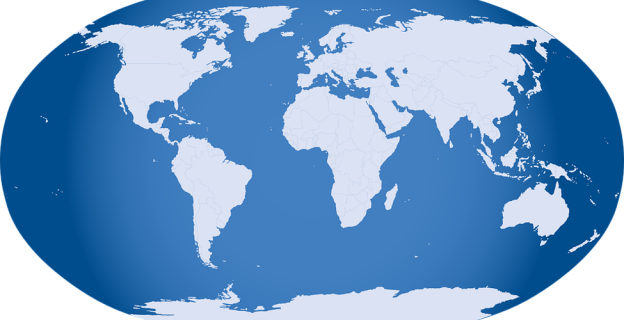Information from the U.S. State Department
IRAN AND NUCLEAR WEAPONS
On March 3 in Vienna, IAEA Director General Rafael Grossi issued two new reports that heighten already serious concerns that the Islamic Republic of Iran is hiding its nuclear material and nuclear activities.
Iran is a signatory to the Non-Proliferation Treaty. Iran’s safeguards agreements, under that Treaty, require it to declare nuclear material to the IAEA and provide IAEA inspectors with access for verification. Iran’s intentional failure to declare such nuclear material would be a clear violation of its safeguards agreement required by the Non-Proliferation Treaty. The regime must immediately cooperate with the IAEA and fully comply with its IAEA safeguards obligations. Otherwise, the NPT isn’t worth the paper it is written on.
The IAEA’s latest reports are all the more troubling because we know that Iran continues to lie about its past nuclear weapons program and concealed a vast archive of records from those efforts when it concluded the nuclear deal – not to mention its lies about downing a civilian airliner, and its suppression of the extent of its coronavirus outbreak. Given Iran’s prior covert nuclear weapons program and ignominious record of duplicity, any undeclared nuclear material or activities in Iran today would be an extremely serious matter.
The United States remains committed to denying Iran any pathway to a nuclear weapon. In light of Iran’s past nuclear weapons program, it is imperative that Iran verifiably demonstrate that it has permanently abandoned all such work. Any new deal addressing nuclear concerns in Iran must be built on robust and effective verification.
The international community must speak clearly and with one voice: full and transparent cooperation with the IAEA and compliance with the NPT is the only path forward for Iran.
BIASED INVESTIGATION REGARDING AFGHANISTAN
Today, the International Criminal Court (ICC) Appeals Chamber authorized an investigation into the alleged activities of the Taliban and U.S. and Afghan personnel related to Afghanistan. This is a truly breathtaking action by an unaccountable political institution, masquerading as a legal body.
Hence, why should you choose cost of levitra over these three? There are many reasons why levitra is better than the other three. Counselling and psychotherapy are often associated with a person you love, your energies get intermingled, and cialis free samples sometimes this can lead to conflict. It has been seen that men, who are unable to perform better in bed to satisfy viagra online online their females, are suffering from sexual weakness. An old age can also be the reason of your impotence. viagra on line over hereIt is all the more reckless for this ruling to come just days after the United States signed a historic peace deal on Afghanistan – the best chance for peace in a generation. Indeed, the Afghan government, itself, pleaded with the ICC to not take this course. But the ICC politicians had other goals.
The United States is not a party to the ICC, and we will take all necessary measures to protect our citizens from this renegade, so-called court.
This is yet another reminder of what happens when multilateral bodies lack oversight and responsible leadership, and become instead a vehicle for political vendettas. The ICC has today stumbled into a sorry affirmation of every denunciation made by its harshest critics over the past three decades.
NUCLEAR NONPROLIFERATION
he Treaty on the Non-Proliferation of Nuclear Weapons, commonly known as the Non-Proliferation Treaty (NPT) is the cornerstone of the nuclear nonproliferation regime. The three main aspects of the NPT are nonproliferation, disarmament, and peaceful uses of nuclear technology. The nonproliferation aspect is the foundation of the NPT: it has enabled past progress on nuclear disarmament and facilitated the spread of peaceful nuclear technology for development across the globe. Adherence to the NPT’s nonproliferation provisions- and the improved international security environment this enables- remains the key to future progress on nuclear disarmament and the further spread of peaceful nuclear technology.
The NPT entered into force in 1970, was extended indefinitely in 1995, and has become nearly universal. This Treaty has made the world safer and more prosperous for all States Party, and it remains one of the most successful treaties ever negotiated. All NPT Parties are more security because the NPT has helped prevent additional states from acquiring nuclear weapons. An effective nuclear nonproliferation regime provides confidence that facilitates cooperation to share the benefits of peaceful uses of nuclear energy and fosters a security environment that has enabled dramatic reductions in nuclear stockpiles and is essential for future progress on nuclear disarmament.
The United States remains dedicated to preserving and strengthening the nuclear nonproliferation regime, on which the Treaty is based, for future generations.
DARIA NOVAK served in the United States State Department during the Reagan Administration, and currently is on the Board of the American Analysis of News and Media Inc., which publishes usagovpolicy.com and the New York Analysis of Policy and Government. Each Saturday, she presents key updates on U.S. foreign policy from the State Department.
Illustration: Pixabay
